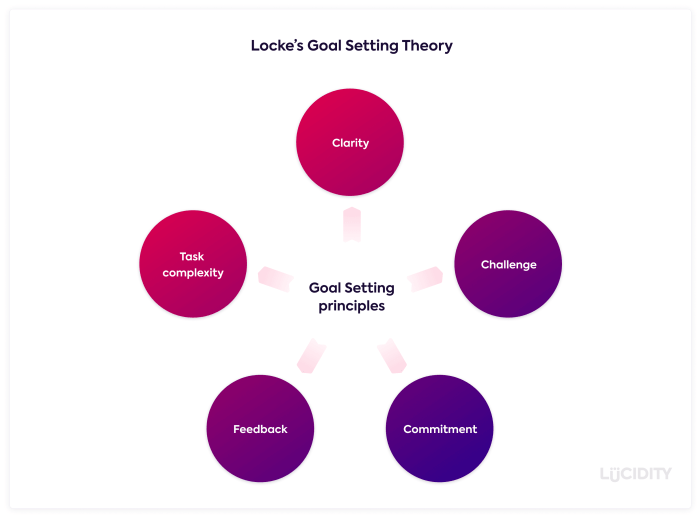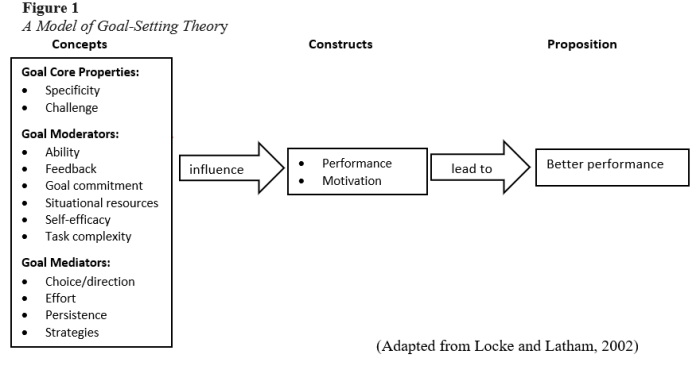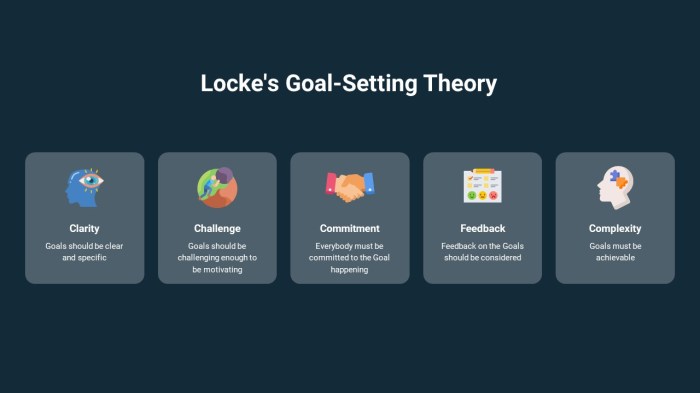Which of the following statements is true regarding goal-setting theory? Goal-setting theory is a motivational theory that suggests that setting specific, measurable, achievable, relevant, and time-bound (SMART) goals can enhance motivation and improve performance. This theory has been widely applied in various contexts, including the workplace, education, and personal development.
Goal-setting theory proposes that individuals are more likely to achieve their goals if they are clear about what they want to accomplish, can measure their progress, and have a realistic timeframe for achieving them. By setting challenging yet attainable goals, individuals can stay motivated and focused on their objectives.
Definition of Goal-Setting Theory: Which Of The Following Statements Is True Regarding Goal-setting Theory

Goal-setting theory is a motivational theory that suggests that setting specific, challenging, and achievable goals enhances motivation and performance. It posits that individuals are more likely to engage in behaviors and exert effort towards attaining clearly defined objectives.
The theory was first proposed by Edwin Locke and Gary Latham in 1968. It has since become a widely accepted framework for understanding and enhancing goal-directed behavior in various settings.
Characteristics of Effective Goals, Which of the following statements is true regarding goal-setting theory
According to goal-setting theory, effective goals should adhere to the SMART criteria:
- Specific:Goals should be precise and unambiguous, clearly defining what is to be achieved.
- Measurable:Goals should be quantifiable, allowing for progress to be tracked and evaluated.
- Achievable:Goals should be challenging but realistic, striking a balance between motivation and attainability.
- Relevant:Goals should align with the individual’s values, interests, and overall objectives.
- Time-Bound:Goals should have a specific deadline or timeframe for completion, creating a sense of urgency.
Setting goals that meet these criteria helps individuals focus their efforts, stay motivated, and achieve optimal performance.
FAQs
What are the key characteristics of effective goals?
Effective goals are SMART: specific, measurable, achievable, relevant, and time-bound.
How does goal-setting enhance motivation?
Goal-setting provides direction and purpose, increases self-efficacy, and creates a sense of accountability, all of which contribute to enhanced motivation.
What are some common obstacles to effective goal-setting?
Common obstacles include procrastination, lack of clarity, fear of failure, and distractions.


